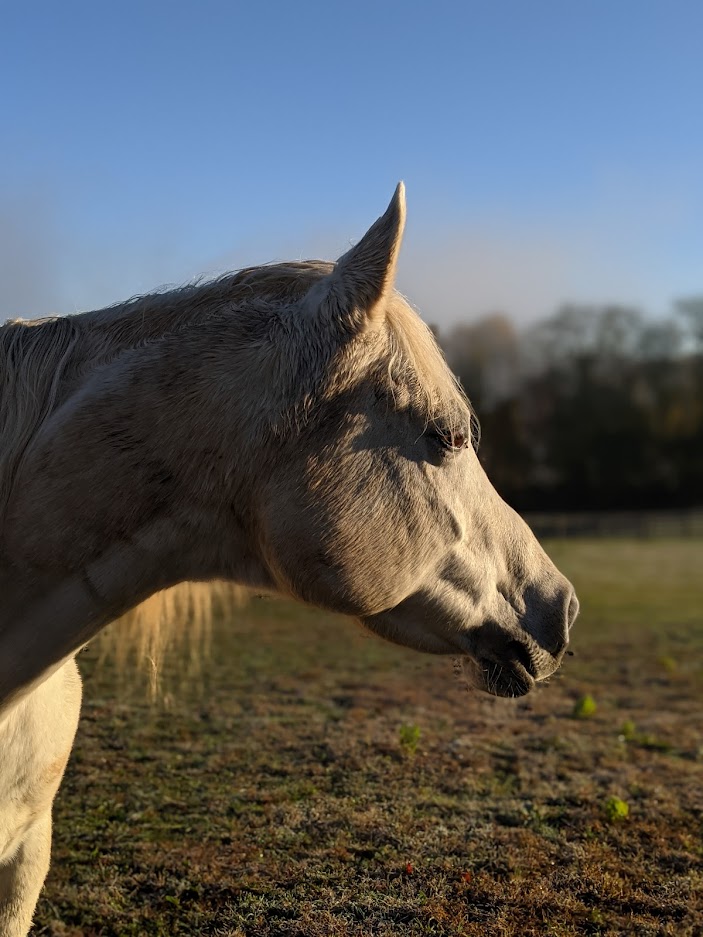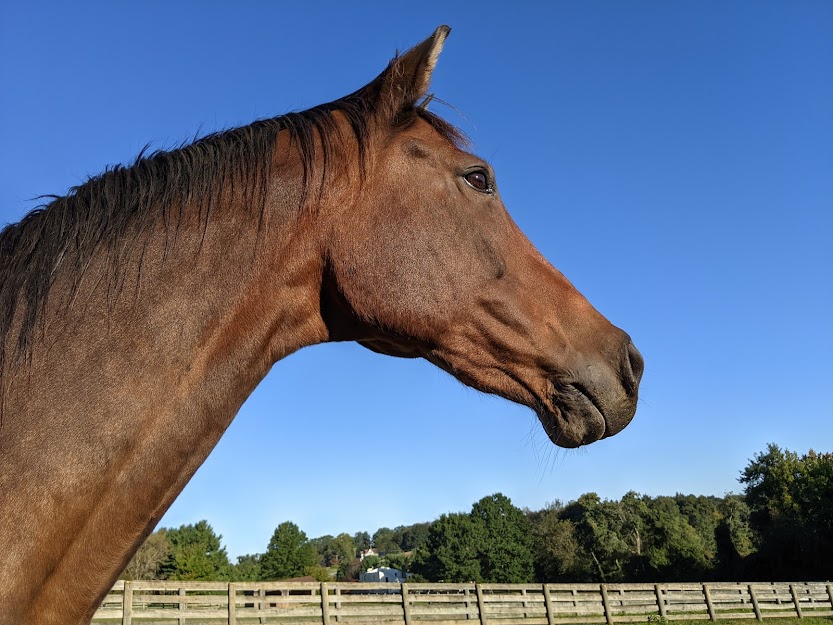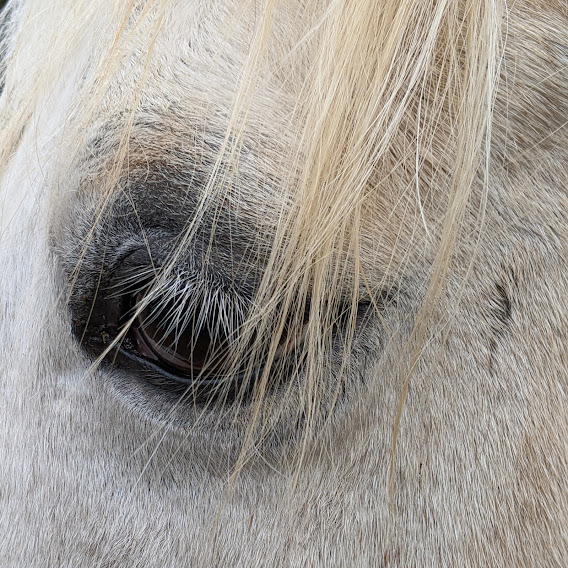
My last post (Reading Season) sent me down a rabbit trail of horse books from my childhood. Some of them I still have, or have gotten new copies of in recent(ish) years. Some I haven’t seen or read since grade school, so I went looking online to remind myself of the stories. After reading the description of one of these books, I got curious about what book sellers had to say about some of the others. A small sample, starting with the one that started the search:
Big Jump for Robin (Suzanne Wilding): “To help her family with financial difficulties, Robin sells her beloved pony to a wealthy family with whose problems she soon becomes involved.”
Summer Pony (Jean Slaughter Doty): “Ginny has always dreamed of having her very own pony, so when her parents agree to rent her a pony for the summer, Ginny is thrilled! But when Mokey arrives, she is shaggy, dirty, and half-starved–not at all what Ginny had in mind. Can Ginny still have the summer of her dreams?”
The Secret Horse (Marion Holland): “Nickie and Gail are two horse-mad and horse-less girls. They hatch up a daring plan to steal a neglected and abandoned horse from the local pound and keep it in secret.”
I still have my childhood copy of Misty of Chincoteague, so I decided to reread that for the first time in decades. I found that I had forgotten over the years that it didn’t start out being about Misty. Paul and Maureen were working odd jobs and saving every penny so they could buy the wildest and wiliest of all the wild ponies, The Phantom. No one knew that she had a foal (Misty) by her side, but that foal would be the only reason she was caught that year. Much of the book is about getting Phantom used to being handled and ridden, though they never do get the wild out of her.
There were Disney princess movies when I was young – certainly Snow White and Cinderella long preceded me – but for me, the fairy tales that stuck with me were these horse stories. In particular, stories in which the main character has no money for horses, and also frequently no appropriate facility to house a horse, but she is able to beg, borrow, or steal a horse anyway – Summer Pony, The Secret Horse. Stories in which the protagonist tames the wild horse – The Black Stallion, Misty of Chincoteague. Stories in which the main character has a great deal of horse know-how but no money, so she indentures herself to someone who has both money and horses – Big Jump for Robin.
Some aspects of these stories matched my reality with horses. I lived in the city, I certainly didn’t have the money to own a horse, and there were times my family didn’t seem to have the money for me to take lessons. My sister and I both cleaned stalls at the barn in exchange for lessons on and off during junior high and high school. We talked about pooling our resources to partially lease one of the school horses, but we could never agree on which horse and in all likelihood we didn’t have enough resources to pool most of the time.

Looking back at these books feels like hearing a new-to-me story about someone in my family that suddenly makes me realize that a part of my crazy that I thought was unique to me is in fact something I come by honestly. I’m not sure how I missed that my particular horse crazies are so common. Not just in that others in numbers great or small would have read these same books, but in that the books were written in the first place. The themes preceded the books enough to make the books necessary, or at least possible.
There is a mix of unlikely fantasy and scary reality in the books I loved. The girls in The Secret Horse not only have to steal the horse, they have to find an abandoned barn to keep him in (in the middle of Washington DC) – and they do. The wild horse tamings of The Black Stallion and Misty are improbable but something I’m sure every young horse lover dreams of. I know I did. The scary reality parts mostly have to do with horse illness or injury. Early in Summer Pony, Mokey gets out of the converted garage the family uses to house her and gorges herself on apples, leading to a very scary night of colic. It is worth noting that in Winter Pony, the sequel to Summer Pony, Mokey (because of course Ginny was able to keep her past summer) turns out to be in foal from a stallion at the farm where they found her. Because what first-time horse owner doesn’t need a carelessly and accidentally bred foal to raise?
The protagonist of a book called Half Pint and Others was my early role model for both running a lesson barn on the cheap and for doing stupid things with horses and mostly getting away with it. Over the course of one summer she puts a new horse out in a field that he promptly get out of, she tries to rush her own horse onto a trailer and gets her ankle tromped on, she has to euthanize a horse she was given that turns out to be terminally lame, she breaks her arm falling out of the hay loft, and she spends far too much time chasing loose horses or treating their wounds once she finally gets them back home.

Taming the wild horse, nursing the sick or maltreated horse back to health, turning the nag into a dream horse – and doing it all on a shoestring budget with inadequate facilities – these are surprisingly hard ideas to let go of. With three horses outside my window now, I know that in my heart I am still that horse-crazy, horse-less girl. My father was born in 1926 and he grew up with a Depression era view of scarcity that never really left him. I feel like there’s an equivalent for people who grew up wanting horses but who didn’t have money for horses. We never really believe that we can afford them, or that we deserve them, or we never stop thinking that the one we save or find or capture in the wild will, against all odds and also against all our experience, become the horse of our dreams.
I spent twenty formative years figuring out how to spend the least amount of money to get access to horses. The horse world thrives (I say this in the present tense without knowing for sure, but I bet it’s still true) on the desire of horse-crazy kids and young adults to do just about anything in exchange for time with horses. I traded work for lessons, I traded work for housing. I arranged my life to have no expenses because I couldn’t earn enough money to pay them. I rode crazy horses. I worked crazy schedules. I was thirty years old before I ever had a job where I had two days off in a row, and older than that before I had a weekend on the weekend. I trained horses for sale so that I didn’t have to put any money out up front, and the owner and I would split the sale profits in whatever way we agreed (usually not in my favor).
The horses who were the easiest to get access to for free were often the hardest to ride. I took a lot of pride in being able to ride those horses, and also in becoming known as someone who could ride them. It is fair to say that I went looking for difficult horses, though I wouldn’t have said that at the time. Once I finally broke a few bones (after a decade of the luck of the young and foolhardy), I became more afraid of the difficult horses, but my sense of who I was was so tied up in being the one who wasn’t scared of the scary ones that it wasn’t just a matter of not being willing to admit I was scared – I didn’t even recognize that fear was what I was feeling.
When I found my first horse that, while green, didn’t come with a host of issues that needed to be overcome, I almost let her slip by me. My riding instructor at the time was after me for months to try her and I kept finding other worse horses to look at instead. She was for sale, and since (as usual) I didn’t have any money to buy a horse, I was looking for another lease-to-sell arrangement. When I finally did go see her, I liked her ok but she wasn’t very exciting (i.e. not actively dangerous). I talked her owner into a lease-to-sell with a six month time frame. I realized after about a month that this was the horse I had been wanting pretty much my whole life, but didn’t think I’d ever find. Her owner agreed to a payment schedule, and she and I learned together for the next nineteen years.

As I read this over I see that my history with horses looks a lot like a history of bad relationships. I did realize that at some point. I remember saying of my first big bay gelding that I supposed it was an improvement that I was limiting my desire to fix the broken to horses instead of continuing to include humans in my scope. I still have my second bay gelding, who I bought about 15 years after the first one, as proof that recognizing a pattern doesn’t make it go all the way away.
I don’t know that stories of appropriately matched horses and riders learning safely together would make very exciting books to read, but I would love to see those stories lived out in the experience of more real life ponies and little girls. My time with my own horses has taken another turn recently, and I’m no longer trying to train them to do anything. I am, however, welcoming all the ways in which they are trying to train me. I want my horses’ horse stories to be boring stories about peaceful interactions with humans, instead of the story of how they keep having to try to to fix the broken one.

Lovely. Now, write that book you want to read. (Says she, whose blog is aging before publication…though I’ve had a few things on my plate recently. But who hasn’t? Still, your post has re-minded me and brought the topic back to the table; your posts seem to have that effect on me.) I find these glimpses into your young life fascinating, esp gems like “…my sense of who I was was so tied up in being the one who wasn’t scared of the scary ones that it wasn’t just a matter of not being willing to admit I was scared – I didn’t even recognize that fear was what I was feeling.” Thank you, honey.
LikeLiked by 1 person
There is so much to love and to learn about you and your relationships with horses over decades in this piece, Tessa. All the sacrifices you made to be able to keep equines in the center of your life are impressive. Reading about how, over time, you have reached a new place where you do not try to push against a horse’s resistance reminds me of the adage: “What you resist, persists” and also of the basic principle I learned in Aikido of taking your “opponent’s” physical power and allowing it to become an advantage for you.
This piece also brought to mind my years of being “horse crazy”; something to share with you some other time.
LikeLiked by 1 person